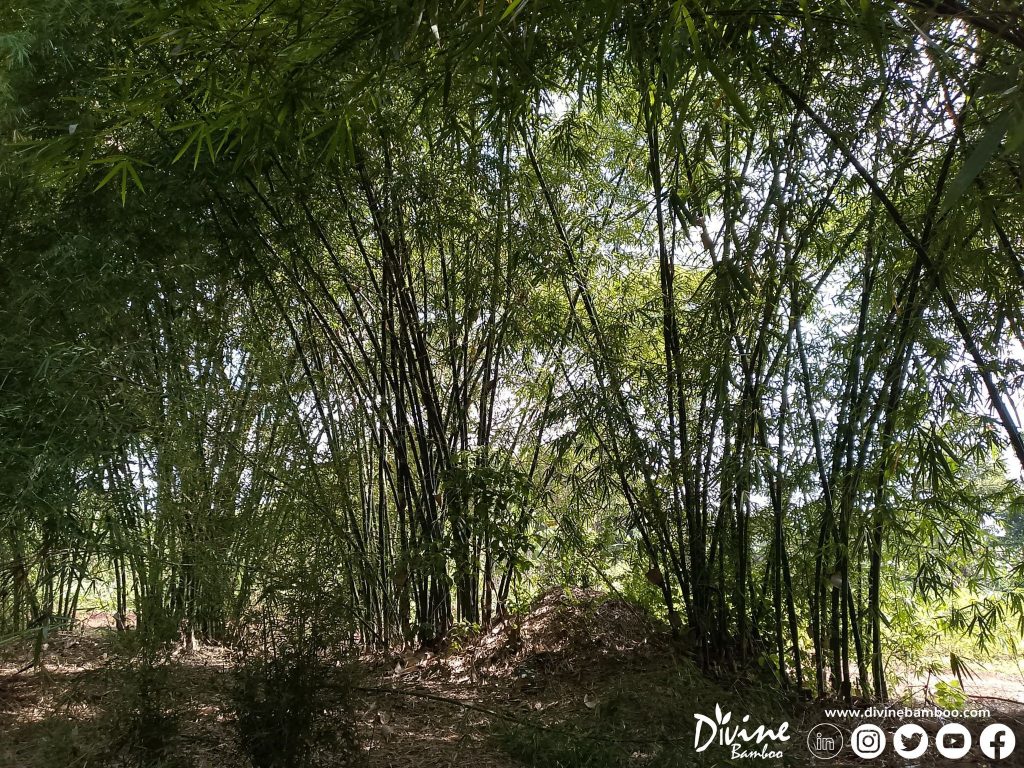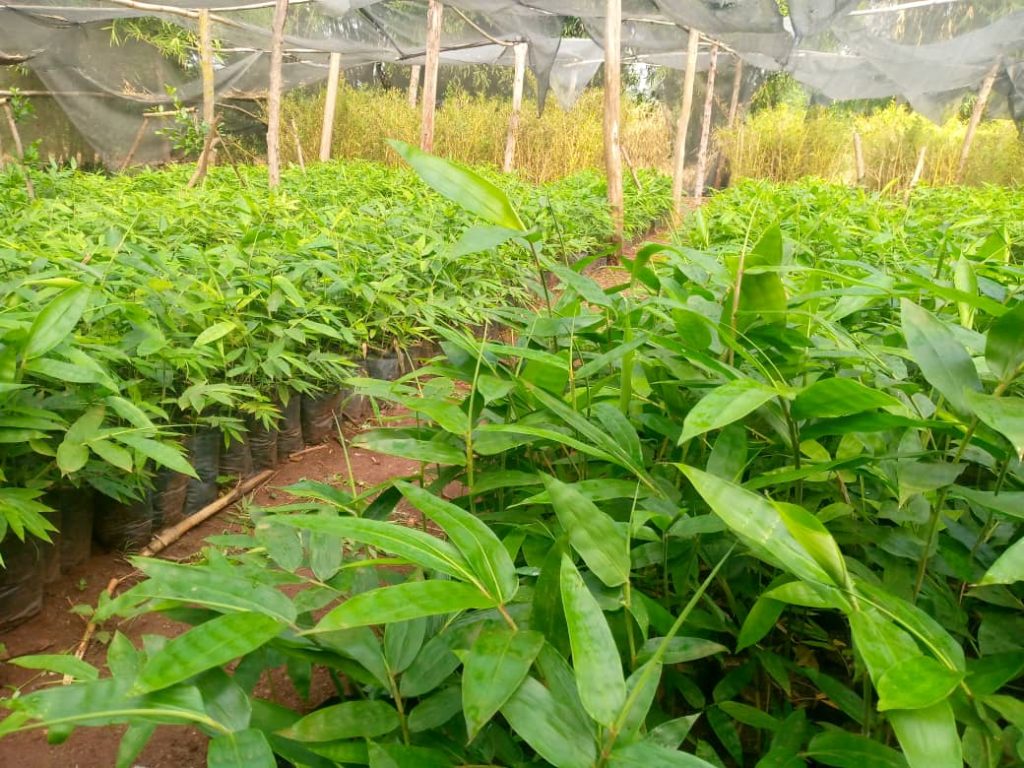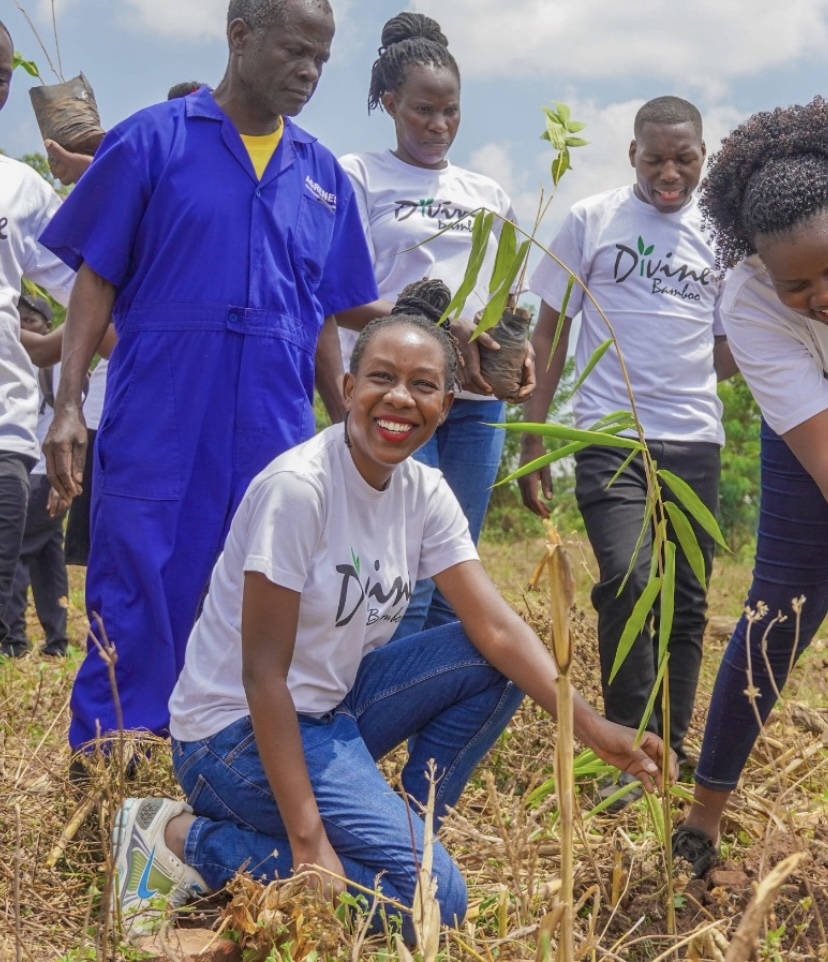By David Mwanje
Divine Nabaweesi’s passion for nature and trees has driven her to make a bold career shift, leaving behind a promising real estate career to tackle deforestation in Uganda. Her innovative venture, Divine Bamboo, founded in 2015, combines her love for the environment with entrepreneurial spirit, offering sustainable solutions to one of Africa’s pressing environmental challenges.
Uganda loses approximately 200 acres of forest annually, largely due to trees being cut for charcoal and firewood, according to the National Forestry Authority. Bamboo, a fast-growing and sustainable plant, offers a viable solution to combat deforestation and climate change, as highlighted by the Uganda Bamboo Association. Inspired by this, Nabaweesi sought to address deforestation creatively while building a business. “I wanted to combine my love for the environment and entrepreneurship to do something impactful,” said Nabaweesi, Founder and CEO of Divine Bamboo.
Bamboo’s versatility—its strength, rapid growth, and myriad uses—makes it an ideal resource for environmental protection and poverty alleviation, according to the International Network for Bamboo and Rattan (INBAR, 2005). “Its strength, straightness, lightness, extraordinary hardness, and short growth period make it suitable for countless purposes,” Nabaweesi explained.

The Journey Begins
Nabaweesi’s journey with Divine Bamboo started in 2015 when her passion for conservation led her to explore bamboo’s potential. “I researched different tree species and fell in love with bamboo—its look, strength, sustainability, and over 10,000 uses. It’s a miracle plant,” she said. To deepen her knowledge, she joined the Uganda Bamboo Association, where she connected with experts, some of whom had studied bamboo farming in China. The association fosters collaboration, sharing resources and technology to advance bamboo cultivation.
In 2016, Nabaweesi pitched her entrepreneurial vision to her family, securing a small plot of land and using savings from her previous business to purchase bamboo seedlings from Luzira Prisons. Starting with 15,000 seedlings, Divine Bamboo has grown into Uganda’s largest bamboo seedling producer, with an annual capacity of over 200,000 seedlings, according to the National Forestry Authority. Her company now operates two nurseries in Najjera and Degeya, in Wakiso and Luwero districts, respectively, and is developing a bamboo briquette production line to provide clean, sustainable cooking fuel.

A Mission to Combat Deforestation
Nabaweesi’s mission is clear: to curb deforestation in Uganda by promoting fast-growing bamboo species for clean cooking fuel, such as briquettes and charcoal. Divine Bamboo supplies high-quality seedlings across East Africa, establishes sustainable bamboo plantations, and promotes bamboo-based fuel as an alternative to traditional charcoal and firewood. These efforts aim to protect endangered ecosystems and mitigate climate change while providing economic opportunities.
To plant bamboo, Nabaweesi advises digging a hole twice as wide as the root ball, spreading the roots, and backfilling with loose soil. “Water thoroughly to eliminate air pockets, and provide shade for the first two weeks,” she recommends. Regular watering for the first two years ensures healthy growth. Maintenance is straightforward but requires diligence. “Bamboo plants are greedy feeders, but one application of organic fertilizer in spring is usually enough,” she noted, cautioning against seaweed-based fertilizers due to bamboo’s sensitivity to salt. Pruning weak or damaged culms promotes air and light circulation, fostering a thriving plantation.

Business Success and Impact
Divine Bamboo has become a trailblazer, managing an 18-species nursery and a 32-hectare plantation in Luwero District. Employing 17 full-time staff and over 50 seasonal workers, the company has supported over 300 hectares of bamboo plantations with private foresters and farmers. The National Forestry Authority allocated five hectares in the Kalangalo Forest Reserve for further expansion. Divine Bamboo’s briquettes, made from locally grown bamboo, are 30% cheaper than traditional charcoal, burn cleaner, and produce no smoke, offering a sustainable alternative for households.
The company also empowers rural women by training them in bamboo planting and briquette production. About 300 women have been trained, gaining access to seedlings and markets to generate income while contributing to environmental conservation. Partnerships with Makerere University and Ndejje University have enhanced product development and raised awareness about bamboo’s potential. Nabaweesi’s achievements include winning the Energy Startup 2019 award at the Berlin Energy Transition Dialogue and setting a record for planting 11,000 bamboo plants in one hour.
Challenges and Resilience
Despite its success, Divine Bamboo faces challenges, including limited government support and reluctance from financial institutions to provide credit to the nascent bamboo sector. “Value addition for bamboo is still new, and sensitizing the public remains a challenge,” Nabaweesi said. However, she remains optimistic, noting that awareness and adoption are growing. Locally, bamboo is used for handicrafts, fencing, farm props, furniture, and cottage industry products like basketry and toothpicks.
Inspiration for Aspiring Entrepreneurs
Nabaweesi encourages aspiring entrepreneurs to stay focused and persistent. “Attend seminars, develop passion, and keep going. If you believe in what you’re doing and love it, you’re on the right path,” she advised. Her motivation stems from personal experience: “As an African woman, I know the difficulties of cooking with charcoal and firewood. I wanted to create a cheaper, cleaner alternative to improve lives.” She sees this as a pivotal moment for African innovation, urging young people to create solutions that drive progress.
Through Divine Bamboo, Nabaweesi is not only fighting deforestation but also inspiring a new generation to blend passion with purpose, proving that environmental conservation and entrepreneurship can go hand in hand.























